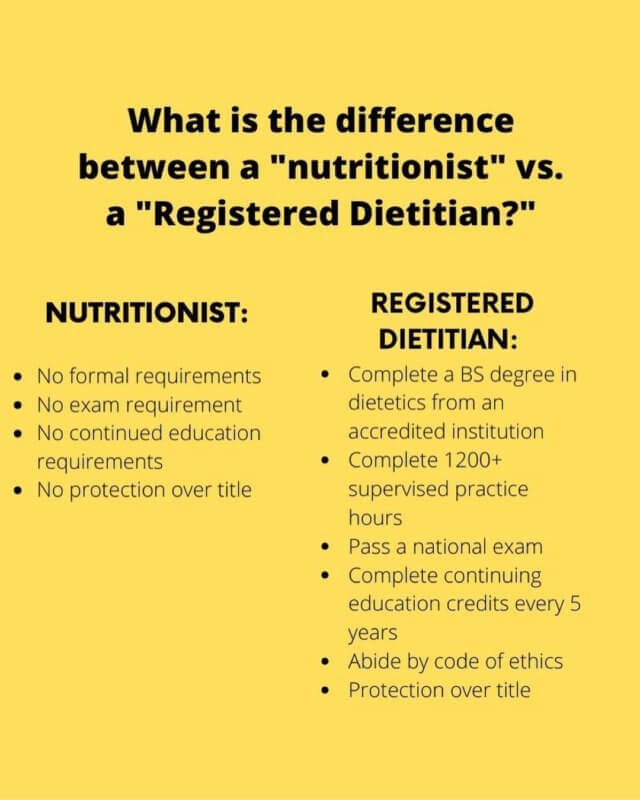All Categories
Featured
Table of Contents
The kinds of Nutritionists are: and. The former are those people who utilize the scientific technique to examine nutrients, both as individual substances and as they engage in food and nutrition while the last are professionals that help in diagnosing the nutritional problems of neighborhoods and in locating services to those issues.
: They deal with health cares and international health and wellness organizations.: They are in charge of large-scale food planning and service.: They are professionals in nutrition and aging. They are Board licensed in Gerontological Nourishment with the American Dietetic Association.: They are mainly entailed with nutritional associated research study in the medical facet of nourishment in illness states, public aspect on primary, secondary and in some cases tertiary health and wellness avoidance and foodservice aspect in problems involving the food prepared for clients.
What Is Full Service Senior Nutrition?
, and newspapers-- either as a professional guest opinion, regular columnist or visitor, or for source, restaurant, or dish growth and critique.: These work under exclusive technique. As clarified above, all dietitians are nutritional experts but not all nutritional experts have the qualifications and certifications to be called dietitians.
This means exactly the same point as Registered Dietitian (RD), a term that has actually been in use for a lengthy time. While certification to become an RD or RDN is regulated by the Academy of Nutrition and Dietetics a nationwide company licensure is managed by individual states.

In order to offer clinical nourishment treatment and qualify as carriers for insurer, a dietitian should be licensed by the state. According to the Bureau of Labor Data, the demand for dietitians and nutritional experts is anticipated to increase by 20% between 2010 and 2020 this is a much faster development rate than the average for all occupations.
What Is The Best Sports Dietitian Company Near Me
There are substantial distinctions in payment based upon specialization, with Professional Pediatric Dietitians and Dairy products Nutritionists balancing roughly $90,000. In 2014, The Bureau of Labor Stats (BLS) discovered that the top 10% of dietitians and nutritional experts earn even more than $79,000, and the bottom 10% much less than $36,000 - Renal Dietitian. A mean hourly wage of $27.62 was calculated for both sectors, with the leading 10% earning over $38.00 per hour, and the bottom 10% earning below $17.00 per hour

There is a range of jobs readily available in various atmospheres for those who want to work with the public, as well as for those who choose more research-focused employment. Lots of get involved in one of these fields in order to aid people live much healthier lives which can be profoundly satisfying.
With current statistics that one-third of the united state population is overweight, in addition to a large number of elderly U.S. citizens, dietitians and nutritionists are likely to have a more substantial role in the future. My Plan rates dietitians and nutritionists at # 53 in their happiness index of leading 300 professions with the greatest task contentment ratings.
In enhancement to going to a certified program, many states call for dietitians to be certified or to have specialist accreditation, or both.
How Much Should I Pay For Nutritionist Consultation?
Your core courses may consist of: Food science Chemistry Wellness care policy Professional nutrition Biostatistics Microbiology Food solution monitoring You'll additionally require to finish a dietetic internship.

And to advance in the area, you'll likely require a master's degree. So, whether created in law or not, dietitians and nutritionists sometimes need a similar education. Usual bachelor's levels for nutritional experts consist of nutrition science or a related technique, such as dietetics, kinesiology, food system administration, or biochemistry. Several of your training courses might include: Patterns in nutrition Biomedical stats Clinical nutrition Food, nutrition, and behavior Nutritional ecology Community nourishment Physiology Some level programs include teaching fellowships, yet in others you'll have to locate opportunities on your own.
The number of hours you'll need may depend on demands in the state where you'll function. Whether you plan to make a credential or otherwise, it's a good concept to complete at the very least one internship to acquire beneficial experience prior to looking for a permanent role. Licensing and accreditation requirements for nutritional experts and dietitians differ from state to state.
What Is The Best Weight Management Software?
A specialist accreditation shows your experience and understanding in your field. Below are the leading certifications for dietitians and nutritional experts.
The titles are basically the exact same. There's no specialist distinction in between them, and you're totally free to choose which one you desire to use based on personal preference. To take the accreditation examination, you should: Earn an undergraduate level that's recognized by the ACEND Total a dietetics teaching fellowship After Jan. 1, 2024, you'll need to make a master's level to get approved for the accreditation.
Is It Worth Paying For Holistic Nutritionist?
Bureau of Labor Data places dietitians and nutritionists in the very same group and claims they earn a median yearly salary of $69,680. Yet there is an array in wages, with the lower 10% around $44,910 and the leading 10% around $98,830, according to the BLS. Nutritionist and dietitian roles are anticipated to grow 6.6% via 2032, according to the BLS.
This does not suggest that one occupation transcends to the various other, as they both have various functions and credentials that might sometimes overlap. If you want to learn even more about what makes these occupations unique, maintain reading. Diet professionals are experts who help enhance the quality of life via healthy food selections.
How Do I Choose A Sports And Fitness Nutritionist Service?
Nutritional expert guidance regarding nutrition's impact on health. They aid people embrace much healthier means of consuming and produce personalized plans based on objectives. Their services include nutritional assessment and coaching, dish preparation and establishing healthy and balanced consuming programs. Although some have official education and learning and credentials, others may have extra fundamental qualifications. The area is less regulated than diet professionals; therefore, nutritional experts' levels of knowledge and credentials can vary.
There are numerous distinctions in between dieticians and nutritional experts. Here are the training and background specs. Dieticians commonly hold a bachelor's level in dietetics, nutrition, or an associated area. As their careers development, many dieticians go after postgraduate degrees, like a Master's or Doctorate, to specialise in specific areas of nourishment. Diet professionals have to carry out supervised practical training as part of their education and learning to obtain hands-on experience in clinical settings, neighborhood nourishment programs, or food solution administration.
Latest Posts
Cost-Effective Workout Plans – Perth 6107 WA
Dependable Cardio Workouts – Lathlain WA
Effective Outdoor Fitness